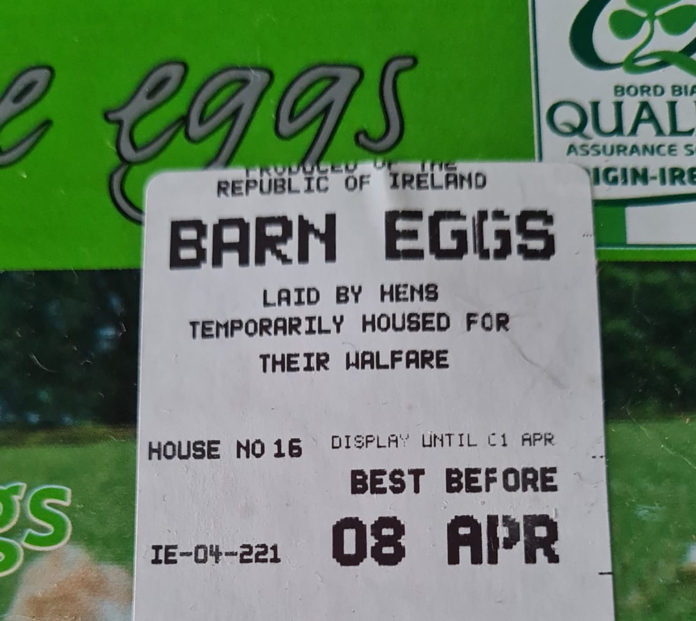
Ethical egg shoppers may have witnessed the impact of Avian flu while shopping, as stickers on boxes of free-range eggs have started to appear in-store saying ‘barn eggs’.
Eggs are allowed to be marketed as ‘free-range’ as long as the birds are not confined for more than 16 weeks. Since 22nd November, poultry have been required to be confined indoors to help reduce the risk of the spread of Avian flu from infected wild birds to domestic birds.
This means that since 14th March, most hens have been inside for 16 weeks and the appearance of ‘Barn Eggs’ will be more common. Stickers will say something similar to ‘these eggs were laid by hens temporarily housed for their welfare’.
There are at least three local producers of free-range eggs in The Avondhu region – Mount Melleray Eggs in Cappoquin, Araglen Eggs and Riverview Eggs in Watergrasshill.
While the Department of Agriculture confirmed to The Avondhu that there should ‘always be some free-range eggs available’ as new flocks will appear, these hens will never have been outside. However, their eggs will still be considered free-range until the hens have been inside for 16 weeks – they they are barn eggs.
Marketing guidance advises that the sticker saying ‘barn eggs’ should obscure the word ‘free-range’ to make clear the distinction.
The definition of free-range, however, is not quite the utopia of hens strutting in the sun the picture on the box might lead you to believe. Legislation states that there must be ‘at least one nest for every seven hens. If group nests are used, there must be at least one metre square of nest space for a maximum of 120 hens.'
In terms of strutting outside, allowable is up to nine hens per one metre square of ‘usable area’.
Intriguingly, according to the FSAI, eggs in Ireland cannot be labelled as both ‘free-range’ and ‘organic’, as only one farming method can be marked on a packet of eggs.







